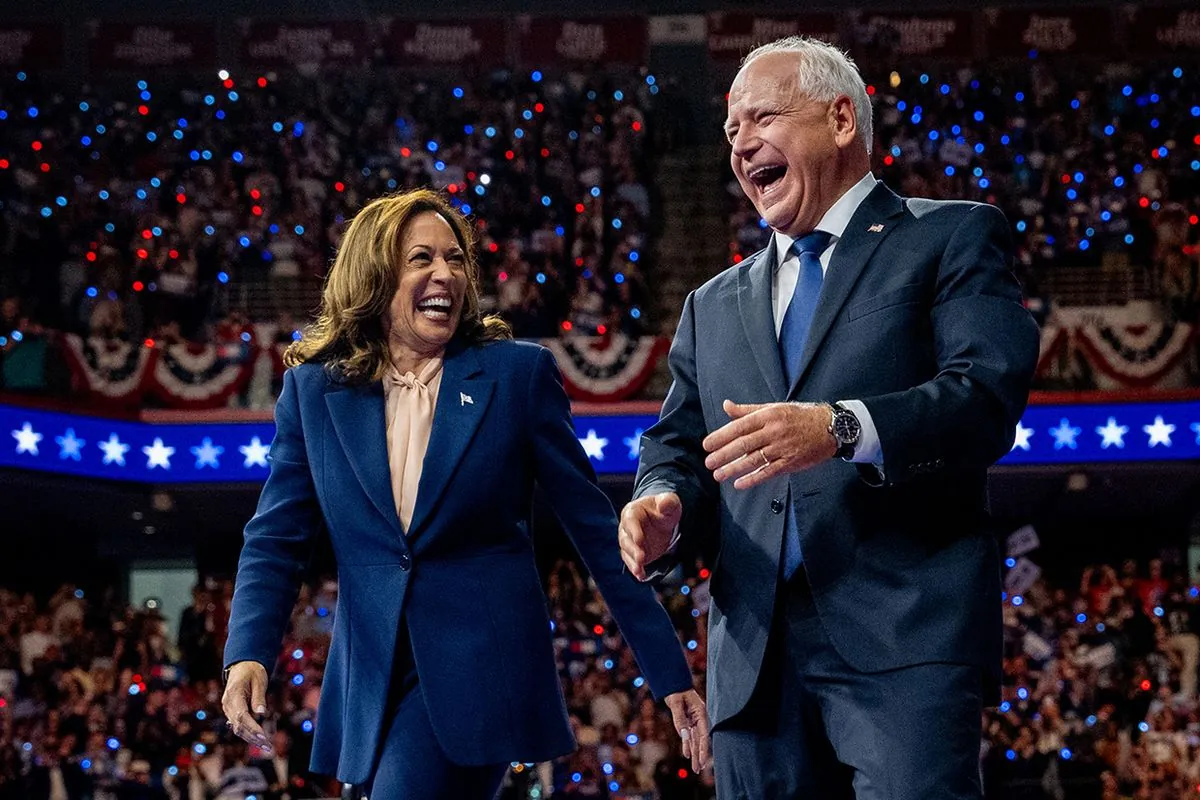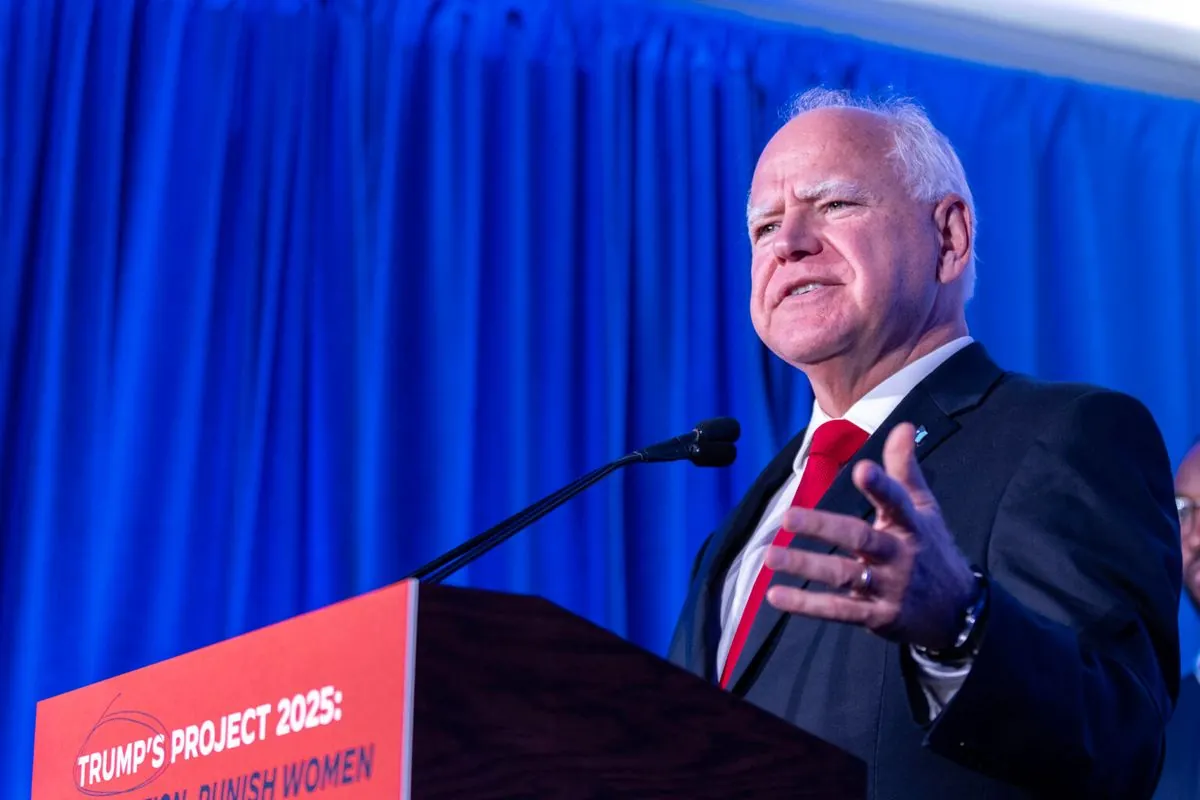GOP Probes Walz's China Ties as Democratic Ticket Shifts Focus
House Republicans investigate Minnesota Gov. Tim Walz's China connections following his selection as Kamala Harris's running mate. The move marks a shift from scrutinizing Biden to targeting the new Democratic ticket.

In a significant political development, House Republicans have initiated an investigation into Minnesota Governor Tim Walz's connections with China. This move comes in the wake of Walz's recent selection as Vice President Kamala Harris's running mate for the 2024 Democratic presidential ticket, marking a shift in the GOP's investigative focus.
Representative James Comer, the House Oversight Committee Chairman, has raised concerns about Walz's alleged "concerning ties" to China. In a letter to FBI Director Christopher A. Wray, Comer cited Walz's numerous trips to China and requested extensive documentation related to Walz's engagements with Chinese entities.

Walz's history with China dates back to 1989 when he participated in a Harvard University teach-abroad program, teaching English and American history for a year. Subsequently, Walz and his wife established Educational Travel Adventures, coordinating trips to China. During his time in elected office, Walz served on the Congressional-Executive Commission on China and advocated for legislation critical of China's human rights record.
"Republicans are twisting basic facts and desperately lying to distract from the Trump-Vance agenda: praising dictators, and sending American jobs to China."
This investigation represents a pivot in the Republican strategy, following an unsuccessful 19-month probe into President Joe Biden's family business dealings. The GOP's previous investigation failed to produce evidence linking Biden directly to his family's financial activities.
With the 2024 election approaching, Republicans are now focusing their investigative efforts on Harris and Walz. Last week, Comer announced an inquiry into Harris's work on immigration at the U.S.-Mexico border, mischaracterizing her role as "border czar" despite her actual task of addressing root causes of migration from Central American countries.
Analysts remain uncertain about Walz's potential impact on U.S.-China relations if elected vice president. However, they note that his previous interactions with China are unlikely to further complicate the already strained relationship between the two nations.
This political maneuver occurs against the backdrop of complex U.S.-China relations, which experts consider the most crucial bilateral relationship of the 21st century. With bilateral trade reaching $690.6 billion in 2022, China remains the United States' largest trading partner, underscoring the economic significance of this relationship amidst growing geopolitical tensions.
As the 2024 election cycle intensifies, the scrutiny of candidates' international connections, particularly with China, is likely to remain a focal point of political discourse and investigation.


































